Product Design Engineering with a Year in Industry
UCAS code HW26
- Study mode
- Full-time
- Duration
- 4 years
- Start date and application deadlines
-
- Start date
UCAS code HW26
This programme brings together the disciplines of design engineering and new product development allowing you the opportunity to apply academic knowledge and professional skills in real-life engineering practice.
You’ll study core engineering subjects such as solid mechanics, fluid mechanics, thermodynamics, materials and electronics and computer programming. Alongside, you’ll learn product design techniques such as design communication, human factors, product development and project management. These foundations will give you an understanding of the science that underpins product design engineering.
Then, you’ll move on to advanced engineering science, working on complex design engineering projects that reflect real-life in industry. Unique to this programme is a 300-hour individual product design engineering project on a topic of your choice, demonstrating design and engineering knowledge as well as practical design skills.

We’re proud to announce we’ve been awarded a Gold rating for educational excellence.
Discover what you'll learn, what you'll study, and how you'll be taught and assessed.
In year one you will study the core engineering subjects that provide fundamental knowledge of engineering science alongside product design techniques that underpins the practice of product design engineering.
Programme details and modules listed are illustrative only and subject to change.
In year two you will continue to study core engineering subjects solidifying the fundamental knowledge of engineering science in these subjects.
Programme details and modules listed are illustrative only and subject to change.
You will spend a year of your degree on a work placement, approved by the School of Engineering, normally in an engineering or design-relevant industry or role. The Product Design Engineering with a Year in Industry BEng (Hons) programme is available to all students*. While the School of Engineering and the University will provide the necessary support and guidance, it is the responsibility of the student to secure an industrial placement. Applicants should note that industrial placements are highly sought after and competition to be accepted into one can be significant. They therefore cannot be guaranteed. Students who fail to secure a suitable placement offer will transfer back to the standard version of the programme without a year in industry.
*Overseas students are applicable, though restrictions may apply.
| Compulsory modules | Credits |
|---|---|
| SCHOOL OF ENGINEERING YEAR IN INDUSTRY (ENGG299) | 120 |
Programme details and modules listed are illustrative only and subject to change.
In your final year, you move on to study advanced engineering science and work on complex design engineering projects that reflect real-life in industry.
Programme details and modules listed are illustrative only and subject to change.
We are leading the UK’s involvement in the international Conceive-Design-Implement-Operate (CDIO) initiative – an innovative educational framework for producing the next generation of engineers.
Our degree programmes encompass the development of a holistic, systems approach to engineering. Technical knowledge and skills are complemented by a sound appreciation of the life-cycle processes involved in engineering and an awareness of the ethical, safety, environmental, economic, and social considerations involved in practicing as a professional engineer.
You will be taught through a combination of face-to-face teaching in group lectures, laboratory sessions, tutorials, and seminars. Our programmes include a substantial practical component, with an increasing emphasis on project work as you progress through to the final year. You will be supported throughout by an individual academic adviser.
Assessment takes many forms, each appropriate to the learning outcomes of the particular module studied. The main modes of assessment are coursework and examination. Depending on the modules taken, you may encounter project work, presentations (individual and/or group), and specific tests or tasks focused on solidifying learning outcomes.
We have a distinctive approach to education, the Liverpool Curriculum Framework, which focuses on research-connected teaching, active learning, and authentic assessment to ensure our students graduate as digitally fluent and confident global citizens.
The Liverpool Curriculum framework sets out our distinctive approach to education. Our teaching staff support our students to develop academic knowledge, skills, and understanding alongside our graduate attributes:
Our curriculum is characterised by the three Liverpool Hallmarks:
All this is underpinned by our core value of inclusivity and commitment to providing a curriculum that is accessible to all students.
The qualifications and exam results you'll need to apply for this course.
| Qualification | Details |
|---|---|
| A levels |
BBC (including Mathematics: B and ) |
| BTEC Level 3 national extended diploma |
DDM and Mathematics grade B at A Level. |
| BTEC combinations |
BTEC National Extended Certificate M plus BB including Mathematics grade B and a second science grade B at A level. |
| Welsh Baccalaureate Advanced |
C in the Welsh Baccalaureate, plus BB at A level to include Mathematics grade B and another A level grade B. |
| Access |
Pass relevant Access to HE Diploma with 45 Level 3 credits with 27 at Distinction and 18 at Merit |
Studying with us means you can tailor your degree to suit you. Here's what is available on this course.
University of Liverpool students can choose from an exciting range of study placements at partner universities worldwide.
Immerse yourself in Chinese culture on an optional additional year at Xi'an Jiaotong Liverpool University in stunning Suzhou.
Spend a summer abroad on a study placement or research project at one of our worldwide partner institutions.
This course is also available without an included year in industry.
View Product Design Engineering BEng (Hons)
To spend a year in industry, you'll need to secure a placement with an organisation. If you're unable to find a placement, you'll continue with the standard version of the course without a year in industry.
Every student at The University of Liverpool can study a language as part of, or alongside their degree. You can choose:
This course is also available as a five year MEng programme.
View Product Design Engineering with a Year in Industry MEng
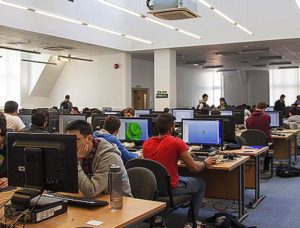
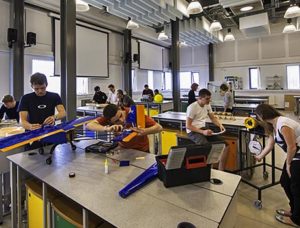

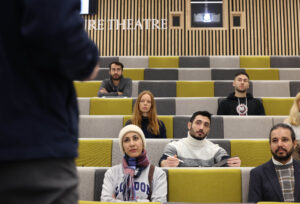
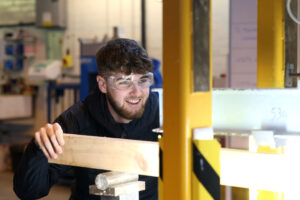
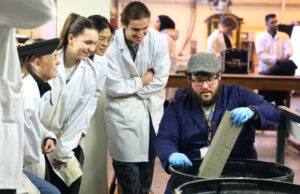
Take a look inside the School of Engineering.
From arrival to alumni, we’re with you all the way:

Want to find out more about student life?
Chat with our student ambassadors and ask any questions you have.
Our research-led teaching ensures that we incorporate the latest advances in cutting-edge engineering research and our graduates have found employment in a wide range of international industries and organisations.
4 in 5 of our engineering students find their main activity after graduation meaningful.
(Graduate Outcomes, 2018-19.)
Your tuition fees, funding your studies, and other costs to consider.
Full-time place, per year - £9,535
Year in industry fee - £1,905
Full-time place, per year - £29,100
Year in industry fee - £1,905
The tuition fees shown are correct for 2025/26 entry. Please note that the year abroad fee also applies to the year in China.
Tuition fees cover the cost of your teaching and assessment, operating facilities such as libraries, IT equipment, and access to academic and personal support. Learn more about paying for your studies.
We understand that budgeting for your time at university is important, and we want to make sure you understand any course-related costs that are not covered by your tuition fee. This may include a laptop, books, or stationery. All safety equipment, other than boots, is provided free of charge by the department.
Find out more about the additional study costs that may apply to this course.
We offer a range of scholarships and bursaries that could help pay your tuition and living expenses.
If you’re a UK student joining an undergraduate degree and have a household income below £35,000, you could be eligible for a Liverpool Bursary worth up to £2,000 for each year of undergraduate study.
Apply for an Asylum Seekers Scholarship and you could have your tuition fees paid in full and receive help with study costs. You’ll need to have applied for asylum in the UK, or be the dependant of an asylum seeker, and be joining an eligible undergraduate degree.
If you’ve spent 13 or more weeks in Local Authority care since age 14, you could be eligible for a bursary of £3,000 per year of study. You’ll need to be a UK student joining an eligible undergraduate degree and be aged 28 or above on 1 September in the year you start.
Are you a UK student with a Black African or Caribbean heritage and a household income of £25,000 or less? You could be eligible to apply for a Cowrie Foundation Scholarship worth up to £8,000 for each year of undergraduate study.
If you’re a UK student identified as estranged by Student Finance England (or the equivalent UK funding body), you could be eligible for a bursary of £1,000 for each year of undergraduate study.
Joining a School of Biosciences degree and have a household income of less than £25,000? If you’re a UK student, you could apply to receive £4,500 per year for three years of your undergraduate course.
Do you live in the Liverpool City Region with a household income of £25,000 or less? Did neither of your parents attend University? You could be eligible to apply for a Nolan Scholarship worth £5,000 per year for three years of undergraduate study.
Are you a UK student with a household income of £25,000 or less? If you’ve participated in an eligible outreach programme, you could be eligible to apply for a Rigby Enterprise Award worth £5,000 per year for three years of your undergraduate degree.
Are you a UK student with a household income of £25,000 or less? Did neither of your parents attend University? You could be eligible to apply for a ROLABOTIC Scholarship worth £4,500 for each year of your undergraduate degree.
Apply to receive tailored training support to enhance your sporting performance. Our athlete support package includes a range of benefits, from bespoke strength and conditioning training to physiotherapy sessions and one-to-one nutritional advice.
Joining a degree in the School of Electrical Engineering, Electronics and Computer Science? If you’re a UK student with household income below £25,000, you could be eligible to apply for £5,000 a year for three years of study. Two awards will be available per academic year.
If you’re a young adult and a registered carer in the UK, you might be eligible for a £1,000 bursary for each year of study. You’ll need to be aged 18-25 on 1 September in the year you start your undergraduate degree.
Use our handy chatbot for your Clearing enquiries.
Last updated 17 June 2025 / / Programme terms and conditions